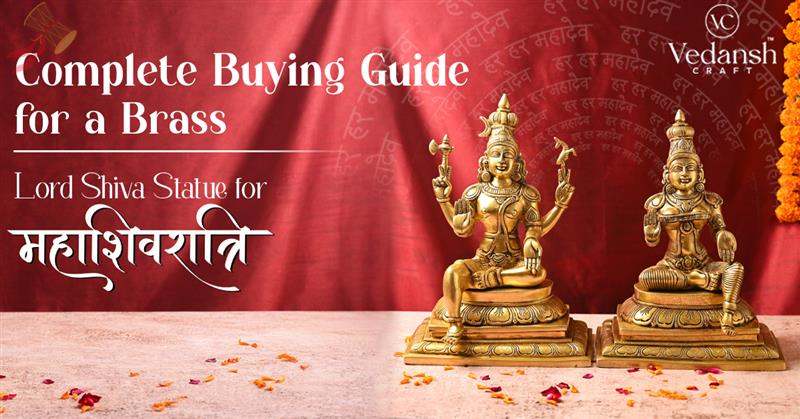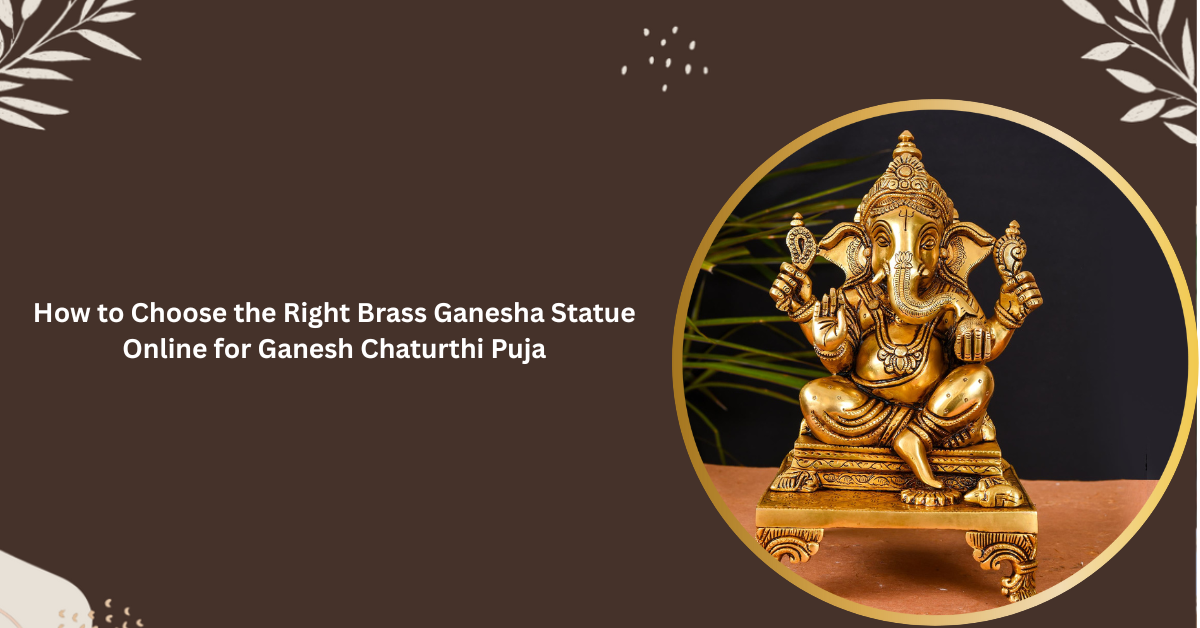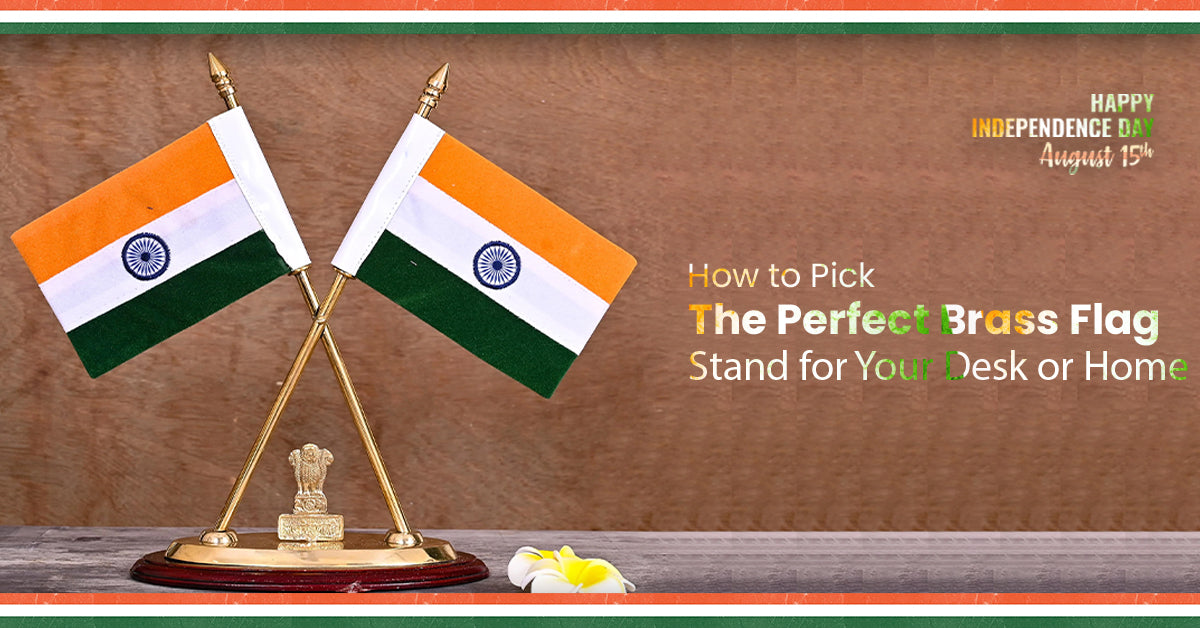

The Advantages of Brass Pooja Items Over Steel for Worship
, by javed techqart, 9 min reading time
Pooja is an integral part of Indian culture. It is a profound act of devotion. Whether they are Jains, Buddhists, Sikhs, or Hindus, it crosses religious lines. Pooja finds a home in the lives of millions of people. With the use of pooja rituals, one can establish a spiritual connection with the divine. People use them to express thanks, ask for favours, and discover inner peace.
The Choice of Materials for Pooja Items
Pooja, a sacred and symbolic practice, involves many items and accessories, each with a specific purpose and meaning. The materials chosen for these items play a crucial role in the efficacy of the ritual. Over the years, various materials have been used, each with significance and symbolism. Among these materials, brass and steel are two contrasting choices, each with unique attributes and implications.
Brass Pooja Items
Brass has an enduring history in Pooja rituals, dating back centuries. Its usage can be traced to ancient Indian scriptures, where it was lauded for its sacred qualities. The tradition of crafting Brass Pooja items from brass was born from a desire to create items that would withstand the test of time and carry an aura of sanctity. Over generations, artisans refined their skills, crafting intricate and spiritually significant Pooja items from this noble metal.
Brass holds a revered place in the hearts of those who practice Pooja. It is believed to possess spiritual purity, making it an ideal choice for items used in worshipping deities. According to Hindu beliefs, brass is associated with Agni, the god of fire, and is considered an auspicious metal for conducting fire-based rituals. This connection with fire and purity aligns beautifully with the essence of Pooja, which seeks to purify the mind and soul.
Brass Pooja items are renowned for their aesthetic beauty and exquisite craftsmanship. Artisans meticulously handcraft each item, infusing it with intricate designs and detailing. The lustrous, golden hue of brass adds an aura of elegance to the Pooja setup, creating a visually captivating and spiritually uplifting atmosphere. The fusion of artistry and spirituality makes brass Pooja items objects of both reverence and admiration.
Brass Pooja items serve as a bridge between tradition and the divine. They are not merely objects but vessels of spirituality, connecting worshippers with their cultural heritage and the divine energies they seek to invoke. The use of brass items in Pooja rituals is a continuation of practices passed down through generations, reinforcing a sense of continuity and a tangible link to one's roots. This connection to tradition adds depth and authenticity to the worship experience, making it more meaningful and spiritually fulfilling.
Advantages of Using Brass Pooja Items
- Durability and Longevity
When considering the longevity of your sacred Pooja items, it's crucial to acknowledge the superiority of brass over steel. Brass Pooja items, including the revered Pooja Thali, Pooja Kalash, Pooja Bells, and Pooja Diya Stand, are designed to withstand the test of time. Unlike steel, brass exhibits exceptional durability, ensuring that your cherished items remain intact for generations.

- Resistance to Corrosion and Tarnishing
Another remarkable advantage of brass is its resistance to corrosion and tarnishing. While steel may succumb to rust over time, brass retains its pristine appearance with minimal maintenance. Your Pooja items, such as the Akhand Diya, Pooja Agarbati Stand, Brass Pooja Samai, and Pooja Chowki, will continue to radiate their spiritual significance without being marred by the effects of corrosion.


- Intricate Designs
Brass Pooja items are renowned for their captivating beauty, characterized by intricate designs and masterful workmanship. Each piece, whether a brass trishul or a pooja bell set, bears the hallmark of skilled artisans who pour their dedication into crafting these works of art. The meticulous attention to detail adds a layer of significance to your Pooja rituals, elevating them to a higher level of spiritual reverence.
- Lustrous Appearance
The inherent luster of brass bestows a radiant aura upon your pooja room. The warm, golden glow emitted by your brass god idols, including those found on your pooja chowki, creates an inviting and spiritually uplifting ambiance. As you worship with these lustrous items, the sacred atmosphere is further enhanced, facilitating a deeper connection with the divine.

- Spiritual Significance
Hinduism places immense significance on the choice of materials for Pooja. Brass, being an auspicious metal, is ideally suited for these rituals. Your selection of Brass Pooja items aligns with the sacredness of the act, symbolizing purity and sanctity. This choice, which includes items like the Pooja Diya Stand and Pooja Thali, enhances the spiritual essence of your worship in your Pooja room.

- Vibrational Qualities of Brass
Brass is believed to possess unique vibrational qualities that resonate with spiritual energies. When using Brass Pooja items such as the Akhand Diya and Brass Trishul, these vibrations are thought to amplify the efficacy of your prayers and rituals. The spiritual connection is deepened, allowing you to experience a more profound communion with the divine.

- Sustainability
When you opt for Brass Pooja items, you welcome tradition and spirituality and contribute to sustainability. Brass is a sustainable material, often recycled and repurposed in crafting these items. This eco-conscious choice aligns with principles of reverence for nature and responsible consumption, allowing you to practice your faith while being mindful of the environment.
- Reduction of Environmental Impact
The environmental impact of metal production is a critical concern. By choosing brass over steel, you're consciously deciding to reduce this impact. Brass production tends to be less resource-intensive and environmentally damaging compared to steel. Your choice to use Brass Pooja items reduces the overall environmental footprint associated with metal production, aligning with a holistic approach to spirituality and responsibility.
Why Steel Pooja Items Fall Short?
As we explore the world of Pooja items, including the exquisite range of brass offerings such as Pooja Thali, Pooja Kalash, Pooja Bells, Pooja Diya Stand, Akhand Diya, Pooja Agarbati Stand, Brass Pooja Samai, Pooja Chowki, and Brass Trishul, it becomes evident why steel, despite its prevalence, often falls short in comparison.
- Steel's Susceptibility to Rust
One of the most glaring drawbacks of steel Pooja items is their susceptibility to rust. Steel, primarily composed of iron, is prone to corrosion when exposed to moisture and humidity. This rusting not only mars the appearance of the items but also raises concerns about their purity during sacred rituals.
- Regular Maintenance Required
To combat rust and corrosion, steel Pooja items demand meticulous upkeep. Regular cleaning, polishing, and rust prevention measures are necessary to ensure their longevity and preserve their aesthetic appeal. This maintenance can become a burdensome task, especially in reverent worship.
- The Disconnect with Cultural and Spiritual Roots
Steel Pooja items, though functional, often lack the rich cultural and spiritual heritage that brass items carry. Using steel introduces a disconnect with the deep-rooted traditions of Pooja rituals. These rituals have been handed down through generations, and brass items are integral to preserving this sacred lineage.
- Minimal Aesthetic Appeal in Comparison
In terms of aesthetics, steel Pooja items generally offer minimal appeal compared to their brass counterparts. The absence of intricate designs and the lustrous warmth characteristic of brass can detract from the overall sacred ambiance of the Pooja room. This lack of visual grandeur can affect the worship experience.
- Steel Production's Environmental Impact
The process of producing steel has a considerable environmental impact, often involving resource-intensive practices and emissions of greenhouse gases. Opting for steel Pooja items may inadvertently contribute to environmental degradation, contrasting with the principles of reverence and responsibility often associated with Pooja rituals.
- Non-Biodegradable Nature of Steel Items
Steel items, being non-biodegradable, pose disposal challenges at the end of their lifecycle. Unlike brass, which can be recycled and repurposed eco-friendly, steel items may end up in landfills, further exacerbating environmental concerns.
Embracing the Radiance of Brass and the Divine Connection It Offers in Worship
As you adorn your Pooja room with brass god idols and elevate your worship with a copper Pooja thali set or Pooja diya stand, you are not merely embellishing your surroundings. You are embracing the radiance of brass, a metal imbued with spiritual significance, and strengthening the divine connection in your worship. Let brass's warm, golden glow illuminate your path to spiritual fulfillment, reminding you of the timeless traditions that have guided countless seekers on their spiritual journey.
Ultimately, the choice is clear: brass Pooja items are more than just artifacts. They offer a transformative and authentic Pooja experience. Explore the best Pooja items online, choose brass god idols for your Pooja room, and embark on a sacred journey that resonates with tradition, spirituality, and reverence for the environment.
Blog posts




